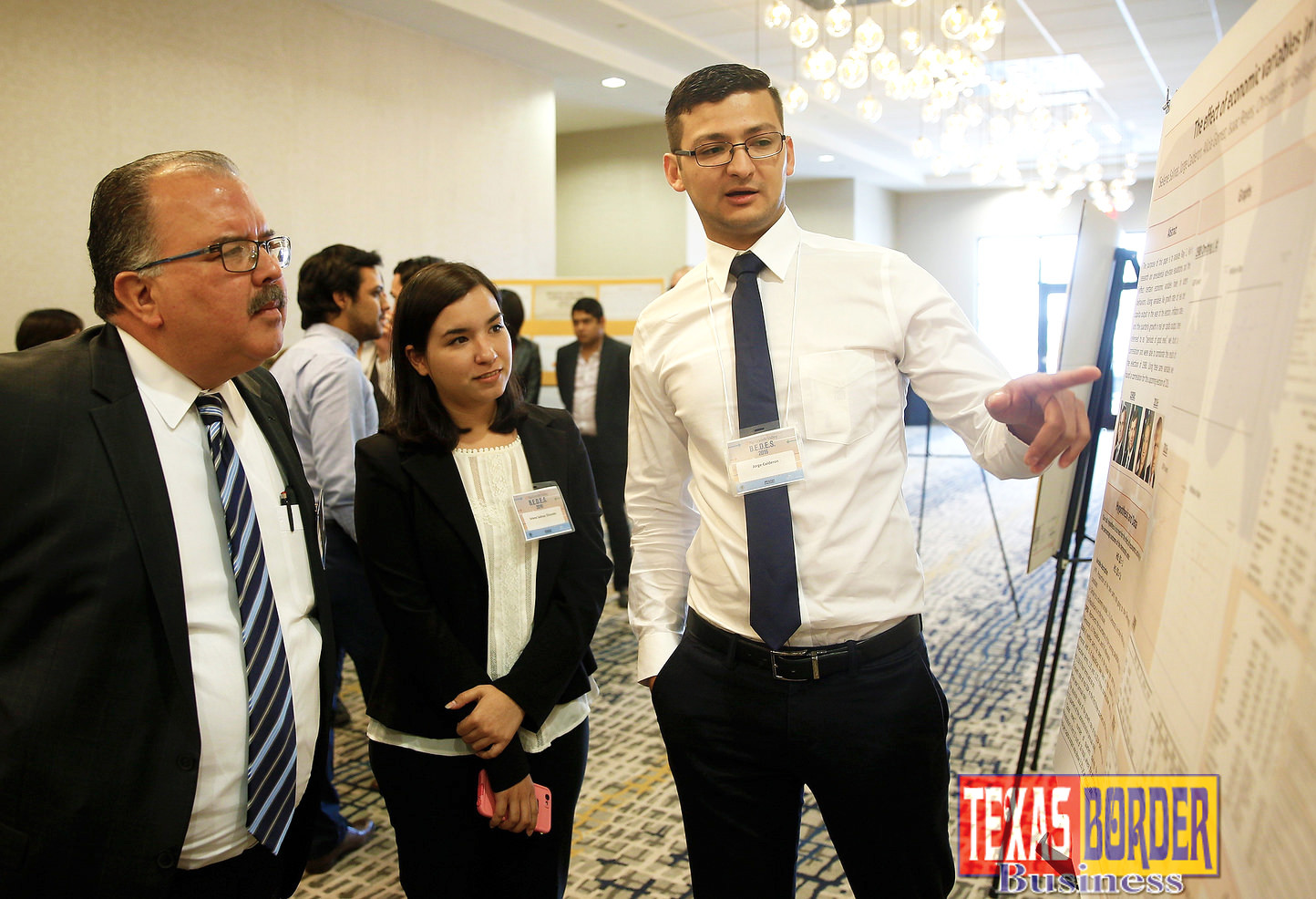
Texas Border Business
By Gail Fagan
McALLEN, TEXAS – NOV. 9, 2016 – The presidents of 11 South Texas banks got to share their thoughts on the morning-after impact of the recent presidential election, during the annual Border Economics, Development and Entrepreneurship Symposium (BEDES) held Nov. 9 at the Embassy Suites Hotel in McAllen.
Most agreed uncertainty lingers about the long-term impact of Donald Trump’s election, but anticipated welcome relief from some of the new regulations on the banking industry initiated during the Obama administration and a possible raise in interest rates, which will be good for savers but result in higher costs for borrowers.
“Hopefully, it will be easier for us to do business and do more business,” said Jason Leal of BBVA Compass Bank.
The roundtable of bankers, who answered other questions regarding their impressions of the local economy based on commercial and mortgage loan activity at their branches, was one of two held during BEDES, which was co-sponsored by The University of Texas Rio Grande Valley’s Department of Economics and Finance in the Robert C. Vackar College of Business and Entrepreneurship, the Federal Reserve Bank of Dallas and the McAllen Chamber of Commerce.
The symposium featured a keynote address by Carlos Marin, founder and CEO of Ambiotec Engineering Group Inc., and an outlook on the Texas economy by Keith Phillips, assistant vice president of the Federal Reserve Bank of Dallas, San Antonio Branch, as well as a labor market analysis by Roberto Coronado, vice president in charge and senior economist of the Federal Reserve Bank of Dallas, El Paso Branch.
Phillips, who illustrated his presentation with charts and graphs, said despite the decline in oil prices, the Texas economy has held up and continued to grow. In terms of jobs growth, he said, Texas generally grows faster than the nation.
“You need to look at the long term factors – like the cost of living here and the low cost of doing business,” said Phillips, who also compared various economic growth factors in several MSA areas of the state.
During symposium breaks, UTRGV business students were able to present their research to the Federal Reserve officials, bankers and other business leaders, Chamber officials and UTRGV faculty attending.
Ironically, a research poster – presented by business college students Selene Salinas, Jorge Calderon, Alicia Gomez, Isaac Reyes, Christopher Gallegos, Abel Sanchez Jose Tolentino and Saul Ventura – revealed the effect of economic variables, on voting behaviors, which estimated the percentage of Democratic vote in this year’s election and the resulting loss by this year’s Democratic candidate.
“Based on our research, we predicted Trump would win and we were right,” said Gomez, a junior economics major.
The students said BEDES gave them a great opportunity to network with the Federal Reserve officials and local bank presidents and representatives.
“This was the first time I have been to one of these events and it is a learning experience,” said Calderon, a management major. “Everyone here is very experienced and they know what they are talking about. They are saying there is a good economic outlook for the region, and promise for the area. So that is very good for us.”
“I like learning from the comments I’ve heard from the people here,” Gomez said. “I want to be one of those bank presidents in the future.”
Both Dr. Jorge Vidal, UTRGV economics lecturer and one of the organizers of BEDES, and Steve Ahlenius, president and CEO of the McAllen Chamber of Commerce, were excited about the opportunity the event provided for local business people and UTRGV students to learn more about the local economic outlook and hear the many perspectives bankers brought to their roundtable discussions.
“We also have the panel on entrepreneurship, which continues to be a big push not only for our community but the entire region,” Ahlenius said. “And for the students, it’s a chance to pitch, which is a big part of how to sell ideas and a great experience for them. We are excited about this great partnership with UTRGV, the Federal Reserve and the Chamber.”















